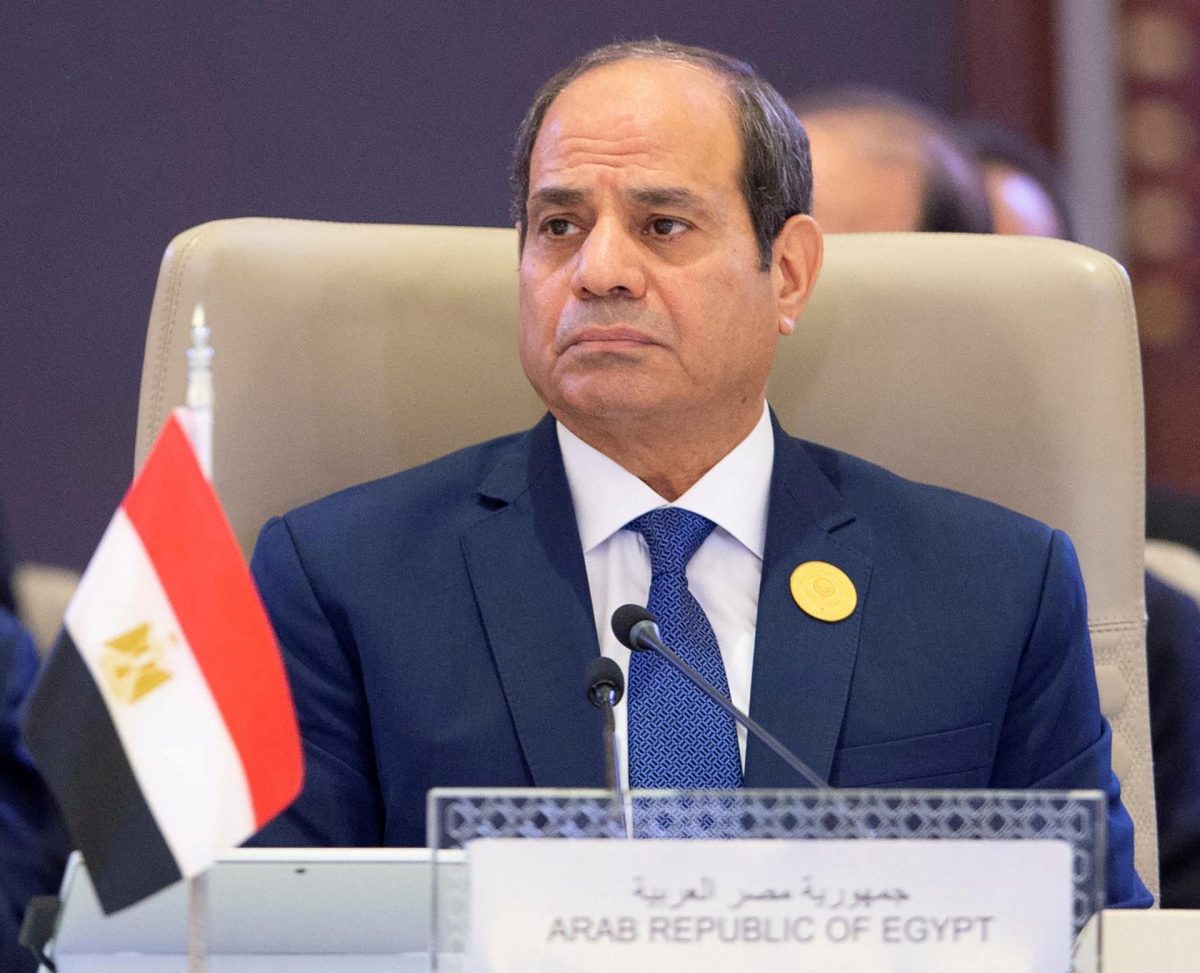Dubbed the law on Securing and Protecting the State’s Public and Vital Facilities, the bill was passed on 28 January, about six weeks after President Abdel Fattah el-Sisi secured a third term in office.
Sisi’s reelection came amid a backdrop of rising popular discontent with a deteriorating economic situation characterised by record debt, a freefalling currency, and skyrocketing inflation, almost 10 years after he first became president.
“The timing of the legislation, and the extensive domestic security powers it grants the military, indicate that Egyptian authorities seek to further transform the military into a police force and use it to suppress potential public discontent or mass protests through expanding their mandate to arrest civilians and refer them to military courts,” a statement by the Cairo Institute for Human Rights Studies (CIHRS) said.
An amendment to Article 200 of Egypt’s constitution in 2019 already placed the military above all institutions, including the Supreme Constitutional Court, by giving it the powers to “preserve the constitution and democracy, protect the basic principles of the state and its civil nature, and protect the people’s rights and freedoms”.
The new law is an amendment of Law No 136 of 2014, which granted the armed forces the powers to assume policing responsibilities to protect public and vital facilities, such as public roads, electricity stations, gas pipelines, and railroads.
In addition to the power to arrest civilians and refer them to military tribunals, stipulated in the older version, the amendment added another article that empowers military officers to “face acts and transgressions that undermine the work of the state’s public facilities, or the services it provides, especially crimes that harm the society’s basic needs of goods and commodities”.
CIHRS noted the term “society’s basic needs” is vague and provides a loophole whereby Sisi or those he delegates have the discretion to determine what those social needs are. Accordingly, the rights group warned that the president will be granted expansive powers by virtue of the new law “to determine the military’s jurisdiction to arrest civilians and refer them to military courts”.
The rights group pointed out that since Sisi became president in 2014, thousands of civilians have been prosecuted by military courts, and at least 363 violations of the right to fair trial have been documented during that period.
“CIHRS believes that further consolidating the military with policing and judicial powers, thereby putting the military on a collision course with popular discontent against economic and human rights policies, will only exacerbate the risk of instability,” the statement read.
“The only way out of the current crisis is to admit previous mistakes, end President Sisi’s monopoly over decision making, restore independence to state institutions, including accountability and oversight institutions, and open up public space to allow citizen engagement in governance issues that impact their everyday lives.”
Egypt’s Sisi, a former army general, came to power after a military coup in 2013 against the country’s first democratically elected civilian president Mohamed Morsi.
Since then, Egypt has been under de facto military rule, with most of the country’s civilian and economic institutions dominated by the military, in what pro-democracy forces consider a counter-revolution following the 2011 uprising.
At least 65,000 political opponents of Sisi are held in jail, according to estimates by the Arabic Network for Human Rights Information.
